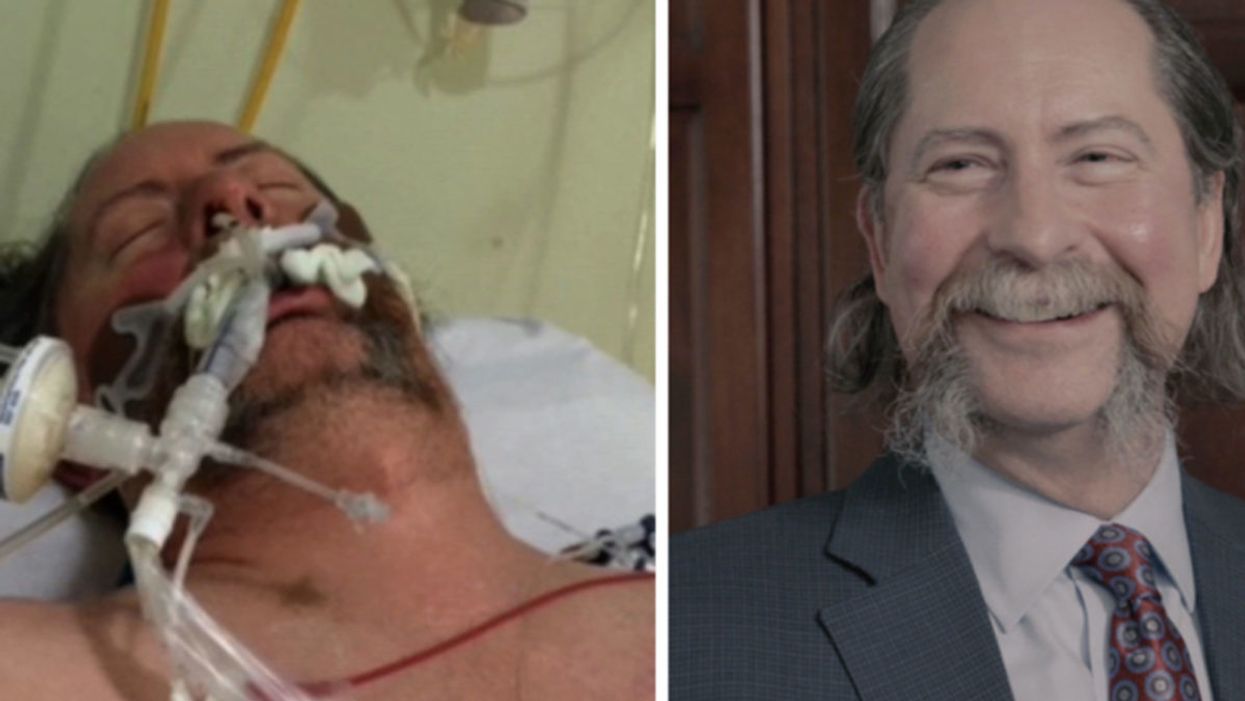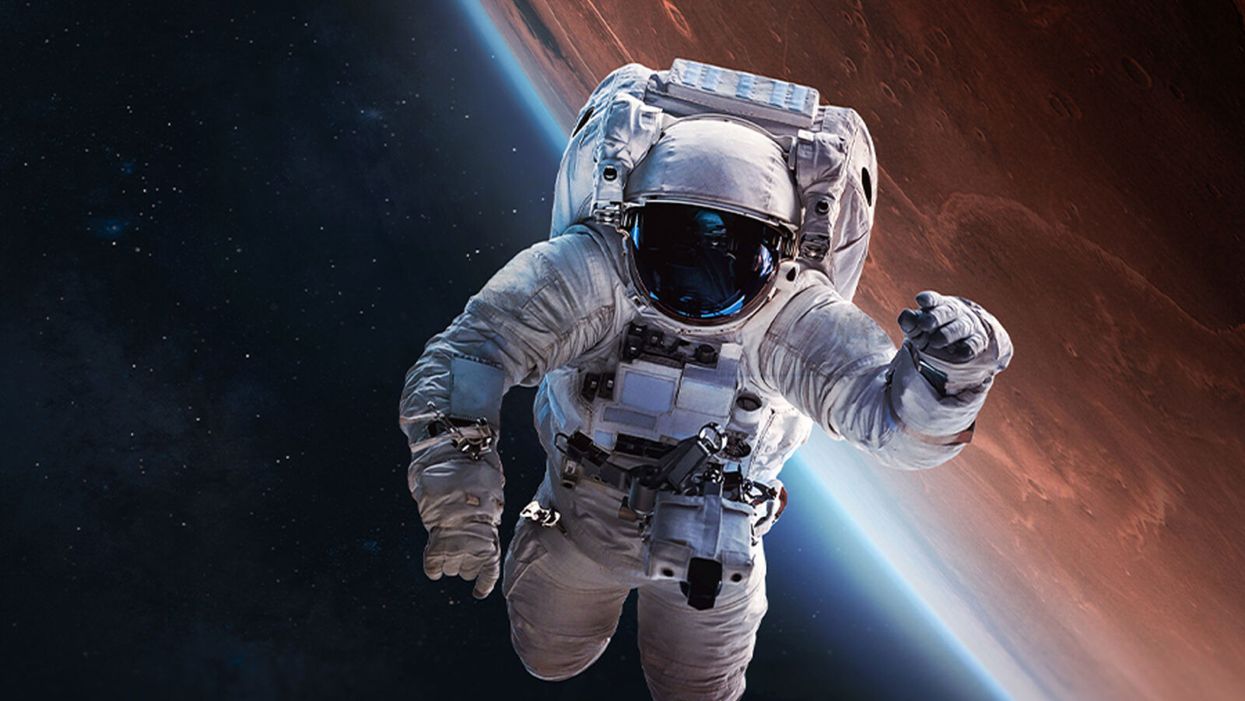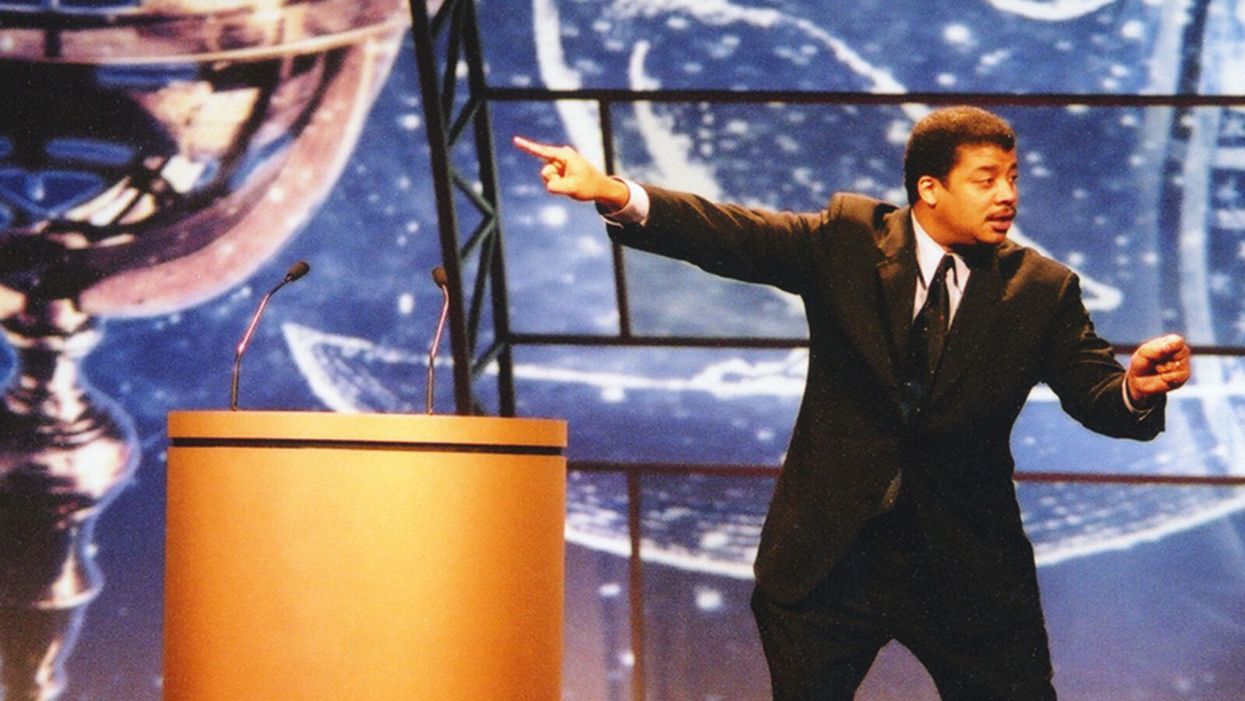I'm a Transplant Surgeon Who Designed the Breakthrough That Saved My Own Life
Kira Peikoff was the editor-in-chief of Leaps.org from 2017 to 2021. As a journalist, her work has appeared in The New York Times, Newsweek, Nautilus, Popular Mechanics, The New York Academy of Sciences, and other outlets. She is also the author of four suspense novels that explore controversial issues arising from scientific innovation: Living Proof, No Time to Die, Die Again Tomorrow, and Mother Knows Best. Peikoff holds a B.A. in Journalism from New York University and an M.S. in Bioethics from Columbia University. She lives in New Jersey with her husband and two young sons. Follow her on Twitter @KiraPeikoff.

Dr. Robert Montgomery, the director of NYU Langone's Transplant Institute, is ironically the recipient of a heart transplant.
[Ed. Note: This is the fourth episode in our Moonshot series, which explores four cutting-edge scientific developments that stand to fundamentally transform our world.]
Kira Peikoff was the editor-in-chief of Leaps.org from 2017 to 2021. As a journalist, her work has appeared in The New York Times, Newsweek, Nautilus, Popular Mechanics, The New York Academy of Sciences, and other outlets. She is also the author of four suspense novels that explore controversial issues arising from scientific innovation: Living Proof, No Time to Die, Die Again Tomorrow, and Mother Knows Best. Peikoff holds a B.A. in Journalism from New York University and an M.S. in Bioethics from Columbia University. She lives in New Jersey with her husband and two young sons. Follow her on Twitter @KiraPeikoff.
An intergalactic explorer on a hypothetical mission to Mars.
Social isolation. Strange pathogens outside. Strategic resource planning. Our Earthbound pandemic-driven social distancing could be mistaken for adapting to another, foreign planet. After all, we're donning all our protective apparel to go on an airplane or to the grocery store, nevertheless to just open our front door. Perhaps this is training for the world galactic visionaries Elon Musk, Jeff Bezos, and Richard Branson see in our future.
"There are parallels to the individual psychological experience, but from an operational standpoint, it is too different."
Ready to go live on Mars or something? Not so fast, experts say. The experience of shelter in place isn't parallel to being a space settler, or even an astronaut.
"Certain aspects are similar, but still, honestly, there are too many differences to say it preps us," says Angelo Vermeulen, co-founder of the art-science collective SEADS (Space Ecologies Art and Design) Network. In 2013, he served as a NASA crew commander for a four-month Mars-on-Earth mission, isolated in a geometric biodome with five others. "There are parallels to the individual psychological experience, but from an operational standpoint, it is too different. You don't need a spacesuit, aren't threatened by a thin atmosphere or worried about being overpowered by radiation."
Outside threats aside, we have a bigger experience gap: Most of us didn't see this pandemic coming and weren't trained to survive the current new normal. NASA astronauts get at least two years of basic training. We received none. Intergalactic explorers understand gravity, air pressure, and other important criteria based on decades of space knowledge. Alternatively, new novel coronavirus data is coming in real time, changing the threats, precautions, and needs dramatically. Things feel a little different when you're winging it.
Lastly, with respect to Apollo 13, space travelers have a timeline for when their experience will be over. There are mishaps, challenges and adjustments, but every well-supported journeyperson leaves Earth with an agenda (and a team back home to help keep them on track).
The pandemic, on the other hand, has no definitive end. It is unclear when a reliable vaccine will be readily available. It is also not known how long we should shelter-in-place, as pulling the trigger too early could bring another wave of illness. We are missing definitive milestones, which, Vermeulen says, would make our isolation experience easier to navigate. "When you're on a mission, the end date is always on the horizon. You can celebrate the midpoint and check off major milestones, which helps."
Also, unlike a kid pretending to be in a rocket, most of us didn't dream of one day being socially isolated for an indeterminate amount of time. "If you're ambitious and working in the field, then it is your goal in life to experience [space and the related isolation]," he says. "With the pandemic, though, nobody chose to do this."
[Editor's Note: This article was originally published on June 8th, 2020 as part of a standalone magazine called GOOD10: The Pandemic Issue. Produced as a partnership among LeapsMag, The Aspen Institute, and GOOD, the magazine is available for free online.]
Neil deGrasse Tyson Wants Celebrities to Promote Scientists
Neil de Grasse Tyson wants fellow celebrities to point their followers to experts and organizations who know what they're talking about.
"President Kennedy was the first president to not wear a hat. Have you seen men wearing hats since then?" Neil deGrasse Tyson, one of the world's few astrophysicists with a household name, asks on the phone from his car. Well, no. "If I wear some cowboy hats, it's because it's the outfit, it's not because that's my standard equipment when I leave the home."
"We have classes on 100 things and none of them are on the ability to distinguish what is true and what is not."
But Tyson, who speaks in methodically reasoned paragraphs with lots of semi-rhetorical questions to make sure we're all still listening, isn't really making a point about Mad Men-era men's clothing trends. "Should a president influence fashion?" he says. "I think people sometimes don't know the full power they have over other people. So, that's the first prong in this comment. My second prong is, why would anyone take medical advice from a politician?"
Days before our conversation, news broke that President Trump said he was taking hydroxychloroquine, which he had hyped for months as a surefire magical cure for COVID-19 — the science just hadn't caught up to his predictions. But the science never did catch up; instead, it went the opposite direction, showing that hydroxychloroquine, when used to treat COVID-19 patients, actually led to an increased risk of death.
Alarm spread swiftly around the globe as experts cast the president's professed self-medicating as illogical and dangerous. However, it was just one of a series of wild pieces of medical advice espoused by Trump from his mighty pulpit, like that, hey, maybe disinfectants could cure people when injected into their bodies. (That also leads to death.)
But people do take medical advice from politicians. An Arizona man afraid of COVID-19 died after consuming chloroquine phosphate, which he and his wife had sitting on the back of a shelf after using it to treat koi fish for parasites. The pandemic has exposed many weaknesses in the feedback loop of society, government, the media, and science, including the difficulty of seeding accurate medical information with the masses. Many on the left and right decry a broken political and news media system, but Tyson believes the problem isn't mega-influencers like Trump. Rather it's the general public's desire to take their advice on complex topics – like the science of virology – that such influencers know nothing about.
Tyson's not upset with the public, who follow Trump's advice. "As an educator, I can't get angry with you," he says. Or even Trump himself. "Trump was elected by 60 million people, right? So, you could say all you want about Trump, kick him out of office, whatever. [There's] still the 60 million fellow Americans who walk among us who voted for him. So, what are you going to do with them?"
Tyson also isn't upset with Facebook, Twitter, and other social platforms that serve as today's biggest conduits for misinformation. After all, in the realm of modern media's history, these networks are tadpoles. "As an educator and as a scientist, I'm leaning towards, let's figure out a way to train people in school to not fall victim to false information, and how to judge what is likely to be false relative to what is likely to be true. And that's hard, but you and I have never had a class in that, have we? We've had biology classes, we've had English lit, we've had classes on Shakespeare — we have classes on 100 things and none of them are on the ability to distinguish what is true and what is not."
This is why Tyson himself doesn't engage in Trump bashing on his social feeds, but does try to get people to differentiate factual science from fake news. "I feel responsibility to participate in the enlightenment of culture and of civilization, because I have that access," says Tyson, who has 13.9M followers on Twitter, 1.2M on Instagram, and 4.2M on Facebook. He doesn't tell his followers not to inject themselves with Clorox ("no one likes being told what to do"), but tries to get them to visualize a pandemic's impact by comparing it to, say, a throng of rabbits.
"Left unchecked, 1,000 rabbits in 5 years, become 7-billion, the human population of the World. After 15 years, a 'land-ocean' of rabbits fills to one-kilometer depth across all of Earth's continents. Viruses can reproduce waaaay faster than Rabbits," he tweeted on April 6, after much of the nation had locked down to slow the pandemic's spread. For added viral impact, he attached a photo of an adorable, perhaps appropriately scared-looking, white bunny.
Of course, not all celebrities message responsibly.
Tyson is a rare scientist-turned-celebrity. His appeal isn't acting in movies or singing dance-pop anthems (if only). Rather, his life's work is making science fun and interesting to as many people as possible through his best-selling books on astrophysics and his directorship of the planetarium at the American Museum of Natural History in New York. His longstanding place in popular culture is an exception, not the rule.
And he believes his fellow celebrities, actors and pop music stars and internet influencers, should aid the public's quest for accurate scientific information. And in order to do that, they must point their followers to experts and organizations who know what they're talking about. "It could be to a website, it could be to a talk that was given. I would say that that's where the responsibility lies if you control the interests of a million people," he says.
One example of this is Lady Gaga's March 14 Instagram of herself on her couch with her three dogs with the caption, "So I talked to some doctors and scientists. It's not the easiest for everyone right now but the kindest/healthiest thing we can do is self-quarantine and not hang out with people over 65 and in large groups. I wish I could see my parents and grandmas right now but it's much safer to not so I don't get them sick in case I have it. I'm hanging at home with my dogs." (All the celebrities here in this article are my references, not Tyson's, who does not call out specific people.)
Of course, not all celebrities message responsibly. Jessica Biel and Jenny McCarthy have faced scorn for public stances against vaccines. Gwyneth Paltrow and her media brand GOOP have faced backlash for promoting homeopathic treatments with no basis in science.
"The New Age Movement is a cultural idea, it has nothing to do with religion, has nothing to do with politics, and it's people who were rejecting objectively established science in part or in total because they have a belief system that they want to attach to it, okay? This is how you get the homeopathic remedies," says Tyson. "That's why science exists, so that we don't have to base decisions on belief systems."
[Editor's Note: This article was originally published on June 8th, 2020 as part of a standalone magazine called GOOD10: The Pandemic Issue. Produced as a partnership among LeapsMag, The Aspen Institute, and GOOD, the magazine is available for free online.]

